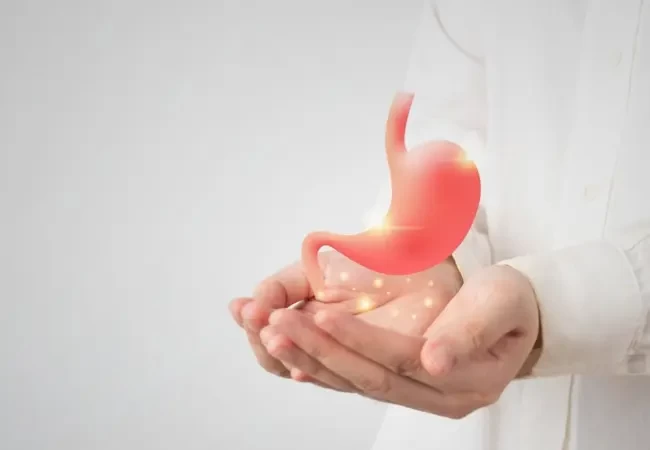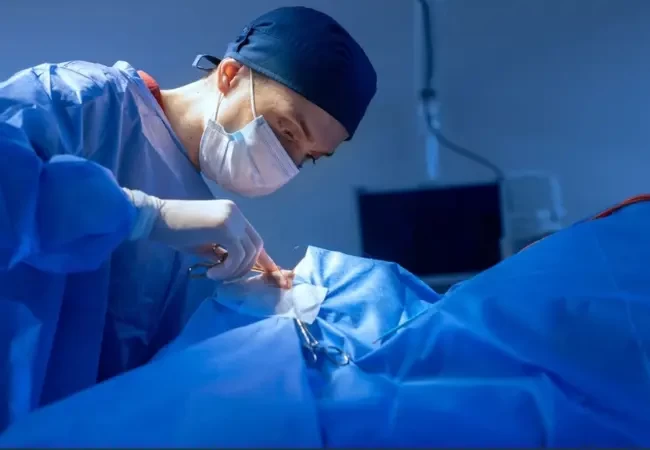 Medically reviewed by: Dr.Solomon K P John , Gastrointestinal surgeon - Written byRiya Yacob - Updated on 07/03/2025
Medically reviewed by: Dr.Solomon K P John , Gastrointestinal surgeon - Written byRiya Yacob - Updated on 07/03/2025Most people are often afraid of surgery. Undergoing gastrointestinal (GI) surgery can feel daunting for many of them. Whether it is getting ready for a simple procedure or a more complex surgery, it's important to know what to expect before, during, and after the operation. This blog will help you understand GI surgery, pre-operative care for abdominal surgery, and aftercare GI surgery. Also, some tips to prepare for your GI surgery.
GI surgery includes various procedures to address issues within the digestive system. This includes the esophagus, stomach, small intestine, colon, rectum, and anus. These surgical interventions are performed for numerous reasons, such as:
Surgical procedures to remove tumours or parts of organs affected by cancers, such as those in the colon, oesophagus, stomach, or pancreas.
Surgeries involve taking out damaged parts of the intestines for diseases like Crohn's disease or ulcerative colitis.
Surgical options aimed at fixing problems caused by diverticulitis, which can lead to infections or tears in the intestine.
Surgery is done to remove the gallbladder due to issues such as gallstones or inflammation.
Surgery that aims to tighten the lower part of the esophagus to prevent stomach acid from backing up.
Procedures to repair bulges in the abdominal area, known as inguinal, hiatal, or umbilical hernias.
An emergency surgery to remove the appendix when it becomes inflamed or infected.
Pre-operative Care
Avoid eating or drinking for about 8-12 hours before surgery. Pre-operative care for abdominal surgery is crucial. Your doctor may also ask you to stop taking certain medications or supplements. Especially those medications that thin your blood. This is to reduce any risks during the surgery.
If you smoke or drink alcohol, giving it up can really help you recover faster. Smoking can slow down healing because it affects your blood flow, while alcohol can interfere with the anaesthesia and weaken your immune system.
It's important to have someone available to help you as you recover at home. Their support will be useful during the first few days after your surgery when you might find it hard to move around.
Before your surgery, think about making some changes in your home. This could mean removing items that you might trip over, setting up a cozy recovery spot where you can rest comfortably, and making sure that things you need are easy to reach.
You may need to reach the hospital several hours in advance to facilitate the check-in process and allow for adequate preparation time. Upon completing the requisite forms, you will undergo a brief examination by a nurse. The nurse will explain the procedure.
Following this, your surgeon and anesthesiologist will meet with you to address any inquiries, review your medical history, and ensure your safety throughout the procedure.
Subsequently, you will be administered medication to promote relaxation. This may result in drowsiness or numbness in a specific area, depending on the type of anaesthesia required. Once you are prepared, you will be taken to the operating room for the surgical procedure.
Your gastroenterologists will guide you to the most appropriate treatment options tailored to your specific health needs. Common procedures include:
This minimally invasive procedure allows for the examination of the colon and rectum using a flexible tube with a camera, which is helpful for the diagnosis and treatment of polyps.
A sophisticated technique employing sound waves to generate detailed images of the digestive tract, which assists in identifying abnormalities.
This procedure permits visualization of the upper digestive tract and is fundamental for diagnosing conditions like ulcers, strictures, and tumours.
Known for its minimally invasive nature, it utilizes small incisions and a camera, resulting in reduced postoperative pain and quicker recovery times.
Once the surgery is completed, you will be moved to the Post-Anesthesia Care Unit (PACU). Gastroenterologists will closely monitor your heart rate and blood pressure and assess your pain levels.
You will likely receive medications to manage any discomfort. Adequate pain control is essential for a smooth recovery and to promote healing.
Your introduction to food will start cautiously. In most cases, it will begin with clear liquids. As your digestive system gradually resumes normal function, you will be allowed to consume more substantial foods.
Once you are stable and capable of independent care, you will be discharged with detailed follow-up instructions. Gastroenterologists will instruct you regarding wound care, dietary recommendations, and signs of potential complications.
When it comes to aftercare GI surgery, the following are a few things to consider:
Being a trusted gastroenterology hospital in Kochi, EMC is dedicated to delivering exceptional patient care. Our team of highly trained gastroenterologists and specialists are committed to providing comprehensive and compassionate care. At EMC, we ensure that our patients receive the best possible treatment and support throughout their journey to recovery.


Discover the truth behind common plastic surgery myths. Learn what's real, what's outdated, and how modern procedures truly work.

A step-by-step overview of GI surgery, covering what to do before surgery, what happens in the OR, and how to ensure a strong recovery.

Learn about cancer, its early signs, and prevention tips to lower your risk. Early detection saves lives—stay informed, take proactive steps, and protect your health.

Discover why a skilled pediatrician is essential for your child's growth, development, and overall well-being, from infancy through adolescence.

Discover how dermatology can help tackle acne, slow aging, and treat various skin conditions for healthier, more radiant skin.

Discover common childhood allergies, their symptoms, and management tips. Stay informed to keep your child safe and healthy.

Your liver plays a vital role in metabolism, digestion, immunity, and detoxification. Learn how liver health affects your body and ways to maintain its function.

Strong bones support your body and protect your health. Discover simple diet, exercise, and lifestyle tips to maintain bone strength at any age.

Discover the symptoms, causes, and treatment of hypertensive heart disease. Learn how high blood pressure affects your heart and when to seek medical care.

Learn about chest pain symptoms, causes, and treatments. Know when to seek medical help for a healthier heart.